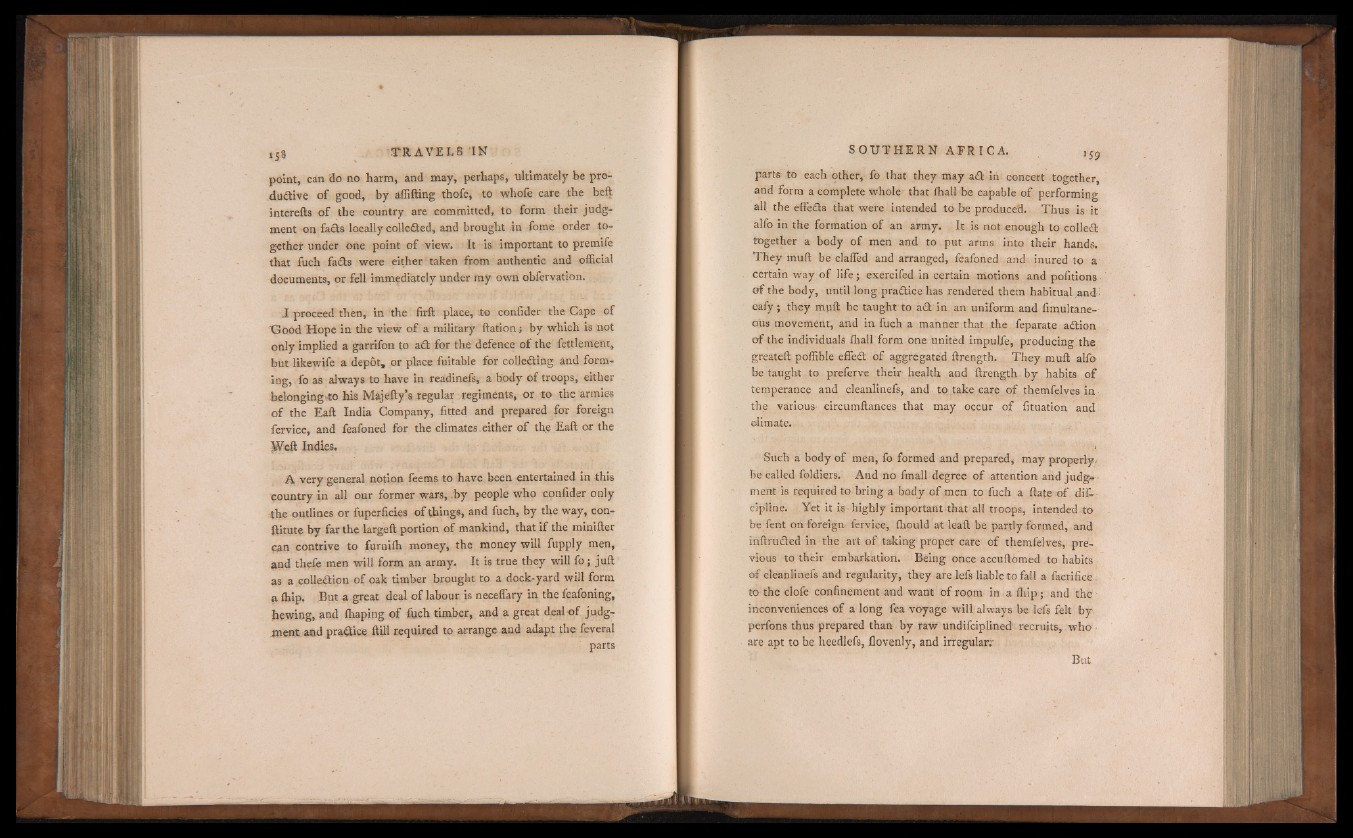
point, can do no harm, and may, perhaps, ultimately be pro-
dudive of good, by affifting thofe, to whofe care the beft
interefts of the country are committed, to form their judgment
on fads locally colleded, and brought in fome order together
under one point of view. It is important to premife
that fuch fads were either taken from authentic and official
documents, or fell immediately under my own obfervation.
I proceed then, in the firft place, to confider the Cape of
■Good Hope in the view of a military ftation; by which is not
only implied a garrifon to ad for the defence of the fettlement,
but likewife a depot, or place fuitable for colleding and forming,
fo as always to have in readinefs, a body of troops, either
belonging-to his Majefty’s regular regiments, or to the armies
of the Eaft India Company, fitted and prepared for foreign
fervice, and feafoned for the climates .either of the Eaft or the
Weft Indies.
A very general notion feems to have been entertained in this
country in all our former wars, by people who confider only
the outlines or fuperficies of things, and fuch, by the way, con-
ftitute by far the largeft portion of mankind, that if the minifter
can contrive to furniih money, the money will fupply men,
and thefe men will form an army. It is true they will fo ; juft
as a colledion of oak timber brought to a dock-yard will form
a ihip. But a great deal of labour is neceffary in the feafoning,
hewing, and ihaping of fuch timber, and a great deal o f judgment
and pradice ftUl required to arrange and adapt the feveral
parts
parts to each other, fo that they may ad in concert together
and form a complete whole that (hall be capable of performing
all the effeds that were intended to be produced. Thus is it
alfo in the formation of an army. It is not enough to colled
together a body of men and to put arms into their hands.
They muft be clafled and arranged, feafoned and inured to a
certain way of life; exercifed in certain motions and pofitions
of the body, until long pradice has rendered them habitual and-
eafy ; they muft be taught to ad in an uniform and fimultane-
ous movement, and in fuch a manner that the feparate adion
of the individuals lhall form one united impulfe, producing the
greateft poffible effed of aggregated ftrength. They muft alfo
be taught to preferve their health and ftrength. by habits of
temperance and cleanlinefs, and to take care of themfelves in
the various eircumftances that may occur of fituation and
climate.
Such a body of men, fo formed and prepared* may properly,
be called foldiers. And no fmall degree of attention and judgment
is required to bring a body of men to fuch a ftate of dif-
ciplfne. Yet it is highly important that all troops, intended to
be fent on foreign fervice, iliould at leaft be partly formed, and
inftruded in the art of taking proper care of themfelves, previous
to their embarkation. Being once accuftomed to habits
of cleanlinefs and regularity, they are lets liable to fall a facrifice.
to the clofe confinement and want of room in t a ffiip; and the
inconveniences of a long fea voyage will always be lefs felt by
perfons thus prepared than by raw undifciplined recruits, who
are apt to be. heedlefs, flovenly, and irregular.'"
But